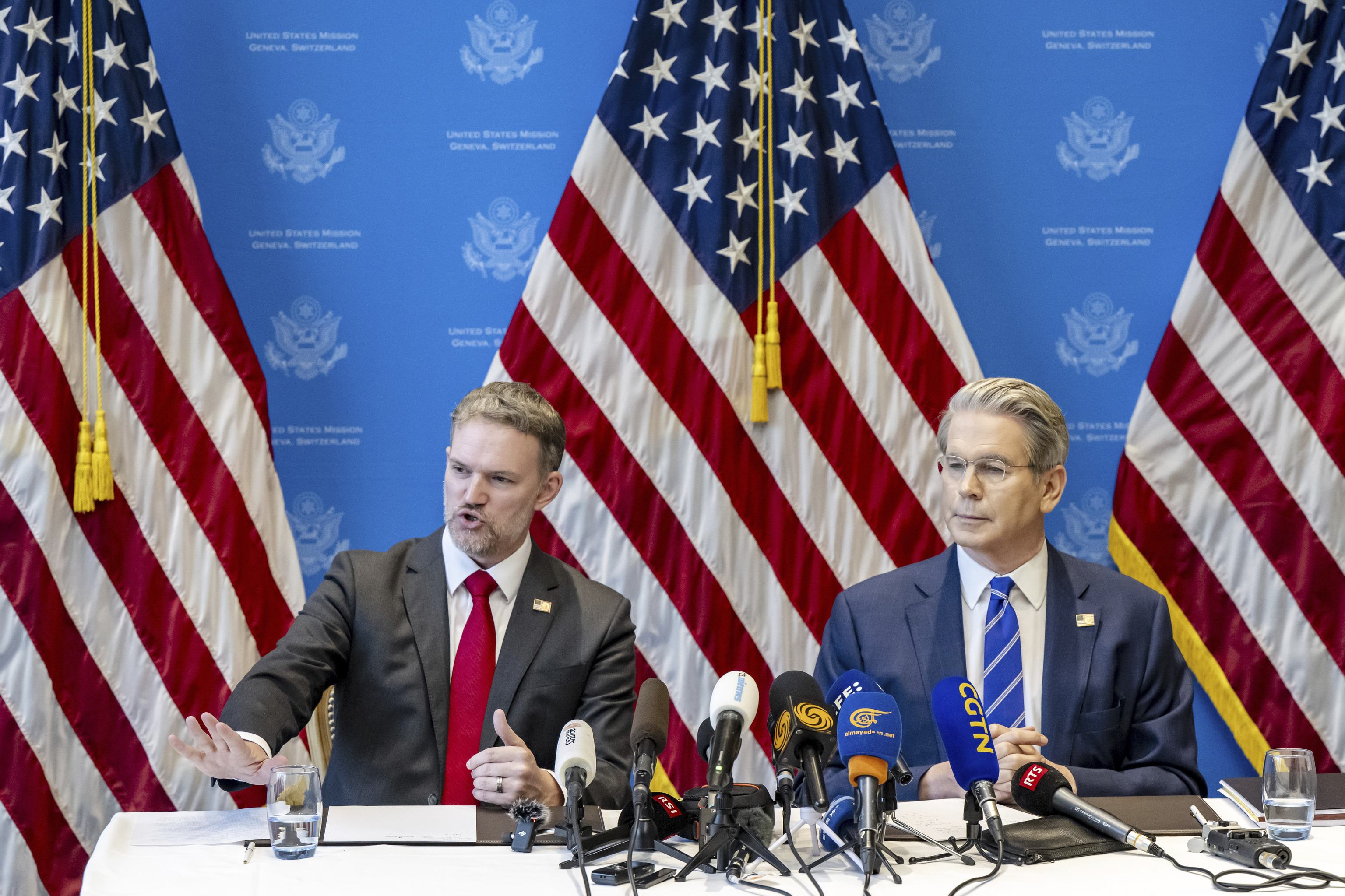He Lifeng, the Chinese Vice Premier in charge of the economy and a trusted aide of President Xi Jinping, emerged triumphant from the weekend trade negotiations marathon in Geneva, Switzerland. Before sitting at the table, facing US Treasury Secretary Scott Bessent for the first time, the Chinese representative, through Beijing's speakers, made it clear that the talks were happening at the insistence of the US side, as China was ready to continue standing firm against the trade war initiated by Donald Trump. Leading up to the meeting, Chinese media recalled a recent statement made by Bessent in an interview: "Tariffs on China have reached unsustainable levels."
The world's two largest economies announced on Monday an anticipated trade truce, suspending most tariffs for 90 days. US tariffs on Chinese products, which Trump had raised to 145%, will be reduced to 30%, while China's 125% tariffs will be lowered to 10%. The 20% difference corresponds to punitive tariffs, for now immovable, related to fentanyl, as Washington accuses Beijing of not doing enough to stop the shipment of the chemical precursors necessary to produce this drug causing havoc in the US.
Both parties celebrated this initial trade agreement, and exporters on both sides breathed a sigh of relief. In Beijing, it has been presented as a success of their negotiating team led by He, as a concession from Trump thanks to the vigorous counterattack during the past few months when Chinese propaganda machinery constantly repeated a slogan that captivated the nationalist masses: "We will fight to the end".
Chinese officials tell this newspaper that everyone was convinced that the US government, after the brutal exchange of tariff blows, with both following a tit-for-tat strategy that led to unprecedented tariff levels, would eventually tone down its stance against China and seek to calm a trade war that Trump himself had started.
In China, it is remembered that, unlike Washington, their political system - a single-party regime capable of launching long-term economic policies and with enough patience provided by absolute control of internal narrative, media censorship, and social media, as well as control of social unrest - allowed them to hold out longer than their adversary. Not forgetting the other trade weapons China has been playing with, such as restricting exports of critical minerals essential for US companies to manufacture sought-after semiconductors and many other technological products.
Chinese state media editorials have emphasized that their negotiators sat down to talk in Switzerland because it was responsible for global stability. However, what was impossible to hide in China was the public concern as trade had come to a complete standstill between two countries heavily dependent on each other. In April, exports to the US dropped by over 20% compared to the previous year.
"My clients were worried because if the situation was not somehow stabilized, the impact by summer was going to be brutal, as they were running out of stock from previous shipments before the tariffs. With this 90-day truce, many orders that had been halted are now being reactivated," explains Jaime Horvilleur, a Spanish commercial agent with over 15 years of experience working in Yiwu, one of the major commercial centers in southern China, home to the world's largest wholesale market for basic commodities.
"It was all part of a rather poor and abusive strategy to negotiate with China, a country that does not back down in these kinds of back-and-forths. Moreover, the US has much more to lose because China has already sought other trading partners to buy products like soybeans, pork, or liquefied gas, which were previously mostly acquired from the US market," continues the Spaniard. "Now what could also happen is that, even if negotiations continue and generic agreements are reached, there will be a loss of US market share, which may not return to its original state because Beijing has already turned former minor partners like Brazil into real suppliers. So, I don't know if the US will sell as much to China as before."
Since Trump unleashed the tariff escalation with China in April, the Asian country has promoted several stimulus packages to boost morale - and consumer confidence - internally, considering that the Asian country's economy is facing several crises that did not exist during the previous trade war in the Republican's first term.
Now, Chinese media highlight Xi Jinping's resilience against Trump's twists, who went from saying he would not reduce tariffs and that Xi should call him first to start negotiations, to being the first to announce on Saturday that both countries were reaching many agreements.
